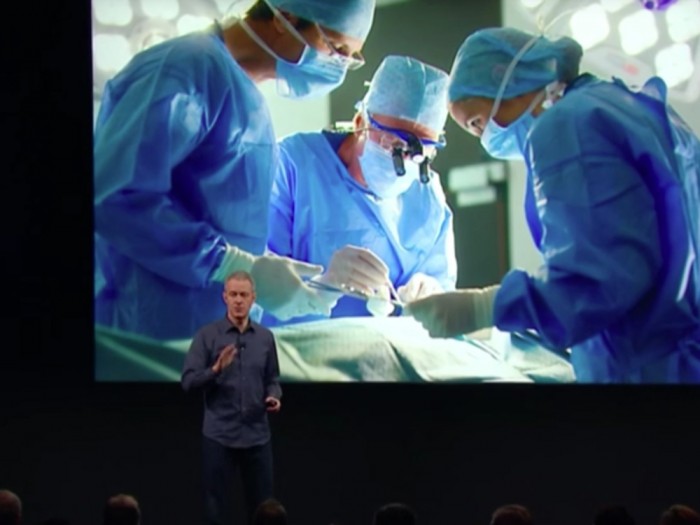FDA E-mails Reveal Apple’s Long Game for Health Tech

Apple has made no secret of its interest in health care. But e-mails between its executives and the U.S. Food and Drug Administration shed new light on the tech giant’s forays into personal health devices and show that Apple has been taking pains to keep its correspondence with the regulator secret.
The e-mails, obtained by MobiHealthNews via a Freedom of Information Act request, show that Apple has been in regular communication with the FDA over the past three years. A 2013 meeting between the two had previously sparked rumors that the hardware manufacturer was developing medical devices.
In particular, the latest e-mails suggest that Apple has been developing an app for the diagnosis of Parkinson’s disease, as well as some form of cardiac monitoring device.
Apple has already been linked with ways to monitor Parkinson’s as part of its CareKit framework. It has showcased an app by Sage Bionetworks and the University of Rochester, which uses onboard sensors to measure movement, a microphone to perform voice analysis, and on-screen tests to evaluate reactions and dexterity.
An e-mail from Apple’s Divya Nag to the FDA’s associate director of digital health, Bakul Patel, suggests that the agency may have been actively involved in readying the app. The e-mail describes a meeting arranged to “discuss the telehealth/remote monitoring use case for Parkinson’s and ... the diagnostic app,” adding that the company seeks to understand if “there are any FDA considerations to understand before implementing.”
Elsewhere, an e-mail from Robin Goldstein, then Apple’s principal counsel, to Patel describes a meeting in which the company sought to “talk about two possible (and related) products in the cardiac space, as well as the associated regulatory and quality systems and requirements.”
Those messages probably allude to some kind of wearable device for monitoring heart health. The Apple Watch already contains heart-rate hardware, and startups have already begun developing a medical-grade add-on that could turn it into a device that helps people with serious heart conditions.
Apple’s progress with health-related technology has been slow but steady. After introducing its Apple Health app, the company slowly developed software frameworks that have turned into its CareKit offering—a platform on which researchers can build and test new software.
Tim Cook has previously said that Apple staff “don’t want to put the Watch through the FDA process … because it would hold us back from innovating,” but he has admitted that they “wouldn’t mind putting something adjacent to the watch,” such as an app or some extra piece of hardware, through that process.
It wouldn’t be the only tech giant to be working on medical hardware. Alphabet’s health spin-off Verily has been building a health-tracking watch designed to measure cardiac activity, a prototype of which was seen by MIT Technology Review.
Taken individually, the e-mails between Apple and the FDA don’t reveal a great deal about the tech giant’s health-care plans. But as a whole, they do suggest that Cook and his executives are happy to play a slow, methodical game breaking into the market. Perhaps when they do, they might set some hearts racing.
(Read more: MobiHealthNews, “I Saw Alphabet’s Health Watch,” “The Apple Watch May Be About to Get a Medical-Grade Add-On,” “Apple Hopes You’ll Talk to Your iPhone and Call Your Doctor in the Morning”)
Keep Reading
Most Popular
Large language models can do jaw-dropping things. But nobody knows exactly why.
And that's a problem. Figuring it out is one of the biggest scientific puzzles of our time and a crucial step towards controlling more powerful future models.
The problem with plug-in hybrids? Their drivers.
Plug-in hybrids are often sold as a transition to EVs, but new data from Europe shows we’re still underestimating the emissions they produce.
Google DeepMind’s new generative model makes Super Mario–like games from scratch
Genie learns how to control games by watching hours and hours of video. It could help train next-gen robots too.
How scientists traced a mysterious covid case back to six toilets
When wastewater surveillance turns into a hunt for a single infected individual, the ethics get tricky.
Stay connected
Get the latest updates from
MIT Technology Review
Discover special offers, top stories, upcoming events, and more.